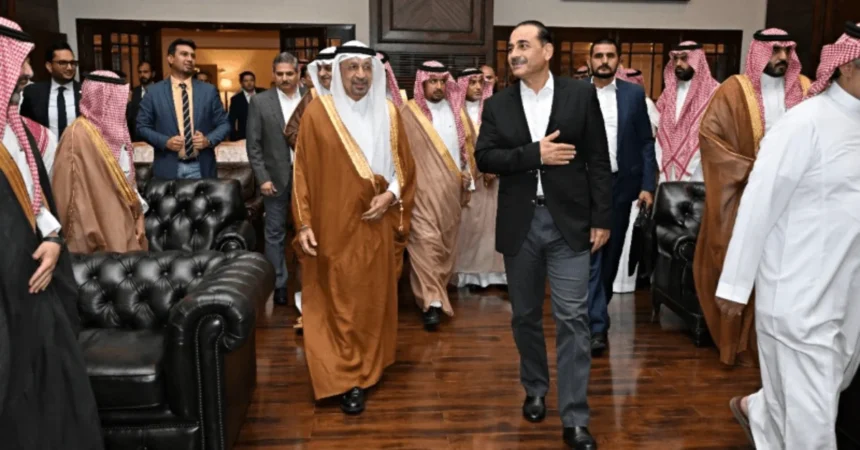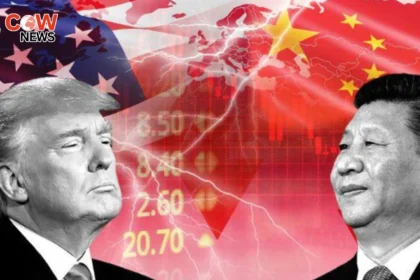Introduction
On October 12, 2024, Pakistan and Saudi Arabia formalized their economic ties by signing a series of Memoranda of Understanding (MoUs) worth $2.2 billion. These agreements encompass a range of sectors, including energy, infrastructure, technology, and cultural exchange, highlighting both countries’ commitment to strengthening their bilateral relations. This article delves into the specifics of these MoUs, the anticipated benefits for both nations, and the broader implications for the region.
The MoUs: Key Areas of Focus
The recently signed MoUs cover several critical areas, reflecting the diverse interests of both Pakistan and Saudi Arabia. Below are the primary sectors involved:
- Energy Sector
A significant aspect of the agreements is the focus on energy cooperation. Pakistan has long grappled with energy shortages that hinder economic growth. The MoUs aim to facilitate investments in renewable energy projects, including solar and wind energy, to diversify Pakistan’s energy sources. Saudi Arabia, known for its vast experience in energy production, is expected to play a pivotal role in assisting Pakistan in this transition. The collaboration could lead to the establishment of renewable energy plants and technology transfer, which would enhance Pakistan’s energy security. - Infrastructure Development
The agreements emphasize infrastructure development, particularly in the context of Pakistan’s China-Pakistan Economic Corridor (CPEC). Saudi Arabia’s investment in infrastructure projects is anticipated to enhance connectivity and foster trade between the two nations. Improved transportation networks, port development, and urban infrastructure projects will benefit both economies. The partnership aims to address the existing infrastructure gaps in Pakistan, making it more attractive for foreign investments. - Technology and Innovation
The MoUs include provisions for technology transfer and collaboration in research and development. Saudi Arabia has made significant strides in technology and innovation, and its partnership with Pakistan could lead to advancements in various sectors, including information technology, telecommunications, and agriculture. This collaboration aims to promote entrepreneurship and innovation in Pakistan, thereby boosting the country’s digital economy. - Cultural Exchange and Tourism
In addition to economic agreements, the MoUs highlight the importance of cultural exchange and tourism. Saudi Arabia aims to promote tourism to Pakistan and vice versa, enhancing people-to-people connections. This aspect of the agreement is particularly significant given the historical ties between the two nations and the shared cultural heritage. Enhanced cultural exchanges could foster goodwill and understanding, paving the way for future collaborations in various fields.
Implications of the MoUs
The signing of these MoUs has far-reaching implications for both Pakistan and Saudi Arabia. Here are some potential outcomes:
- Economic Growth
The infusion of $2.2 billion in investment is expected to stimulate economic growth in Pakistan. This capital will help address pressing issues such as unemployment and inflation by creating jobs and promoting local industries. The collaboration with Saudi Arabia will also enhance Pakistan’s economic resilience by diversifying its economic partnerships, reducing dependence on traditional allies. - Strengthening Bilateral Relations
The agreements signify a strengthening of diplomatic and economic ties between Pakistan and Saudi Arabia. This partnership is expected to deepen mutual trust and collaboration, paving the way for future cooperation in various sectors. As both countries face similar economic challenges, a closer alliance could facilitate collective efforts to address these issues, enhancing regional cooperation. - Regional Stability
The collaboration between Pakistan and Saudi Arabia could contribute to regional stability by fostering economic development and reducing the likelihood of conflict. Economic cooperation often leads to enhanced diplomatic ties, which can mitigate tensions and promote peace in the region. A stable Pakistan is crucial for the broader stability of South Asia, and Saudi Arabia’s support could play a vital role in this regard. - Investment in Human Capital
The MoUs also emphasize the importance of investing in human capital. By promoting education, skill development, and vocational training, the collaboration aims to empower the youth in both countries. This investment will create a skilled workforce capable of contributing to the growth of various sectors, enhancing productivity and innovation in the region.
Challenges Ahead
While the MoUs hold promise, several challenges must be addressed to ensure their successful implementation:
- Political Stability
Pakistan’s political landscape has been volatile in recent years, which poses risks to foreign investment. Political stability is crucial for attracting long-term investments and ensuring the smooth execution of projects. Both countries must work to maintain a stable environment to foster collaboration. - Regulatory Framework
Ensuring a conducive regulatory framework is vital for the successful implementation of these agreements. Pakistan must streamline its bureaucratic processes and create a transparent environment for foreign investors. Clear guidelines and policies will encourage Saudi Arabian investors to engage more actively in the Pakistani market. - Security Concerns
Security issues in certain regions of Pakistan may deter investment. It is essential for the Pakistani government to address these concerns through effective law enforcement and counterterrorism measures. Ensuring the safety of foreign investors will be paramount to attracting and retaining Saudi investments. - Cultural Differences
Understanding and addressing cultural differences will be crucial for the success of the collaboration. Both countries must work to foster mutual respect and understanding, promoting effective communication and cooperation among stakeholders. Cultural exchanges can play a vital role in bridging these gaps, helping both nations to understand each other’s perspectives better.
The Role of Saudi Arabia in Pakistan’s Development
Saudi Arabia has long been an important partner for Pakistan, providing financial assistance and support during challenging times. The recent signing of MoUs reflects the kingdom’s commitment to furthering its engagement with Pakistan.
- Historical Support
Saudi Arabia has a history of providing financial support to Pakistan, particularly during times of economic distress. This latest collaboration builds on that foundation, highlighting the kingdom’s role as a key ally in Pakistan’s development journey. The historical ties between the two nations have laid the groundwork for this new phase of economic collaboration. - Investment in Social Welfare
In addition to economic investments, Saudi Arabia has also contributed to social welfare initiatives in Pakistan. Collaborations in healthcare, education, and poverty alleviation are essential for improving the quality of life for millions of Pakistanis. These efforts demonstrate Saudi Arabia’s commitment to not only economic growth but also the social well-being of the Pakistani people. - Geopolitical Considerations
The partnership with Saudi Arabia aligns with Pakistan’s geopolitical interests. Strengthening ties with the Gulf nation enhances Pakistan’s influence in the region and provides a counterbalance to rival influences. This strategic partnership is crucial in a rapidly changing geopolitical landscape, where regional dynamics are constantly evolving.
The signing of $2.2 billion in MoUs between Pakistan and Saudi Arabia marks a significant milestone in the bilateral relationship between the two nations. With a focus on energy, infrastructure, technology, and cultural exchange, these agreements hold the potential to transform the economic landscape of Pakistan while strengthening ties with Saudi Arabia.
While challenges exist, the commitment from both countries to overcome these obstacles is crucial for the successful implementation of the MoUs. By fostering collaboration and promoting mutual respect, Pakistan and Saudi Arabia can pave the way for a prosperous future, benefiting not only their own citizens but also contributing to regional stability and development.
#PakistanSaudiArabia #EconomicCooperation #MoUs #InvestmentOpportunities #EnergySector #InfrastructureDevelopment #CulturalExchange #BilateralRelations #SaudiInvestments #RegionalStability







